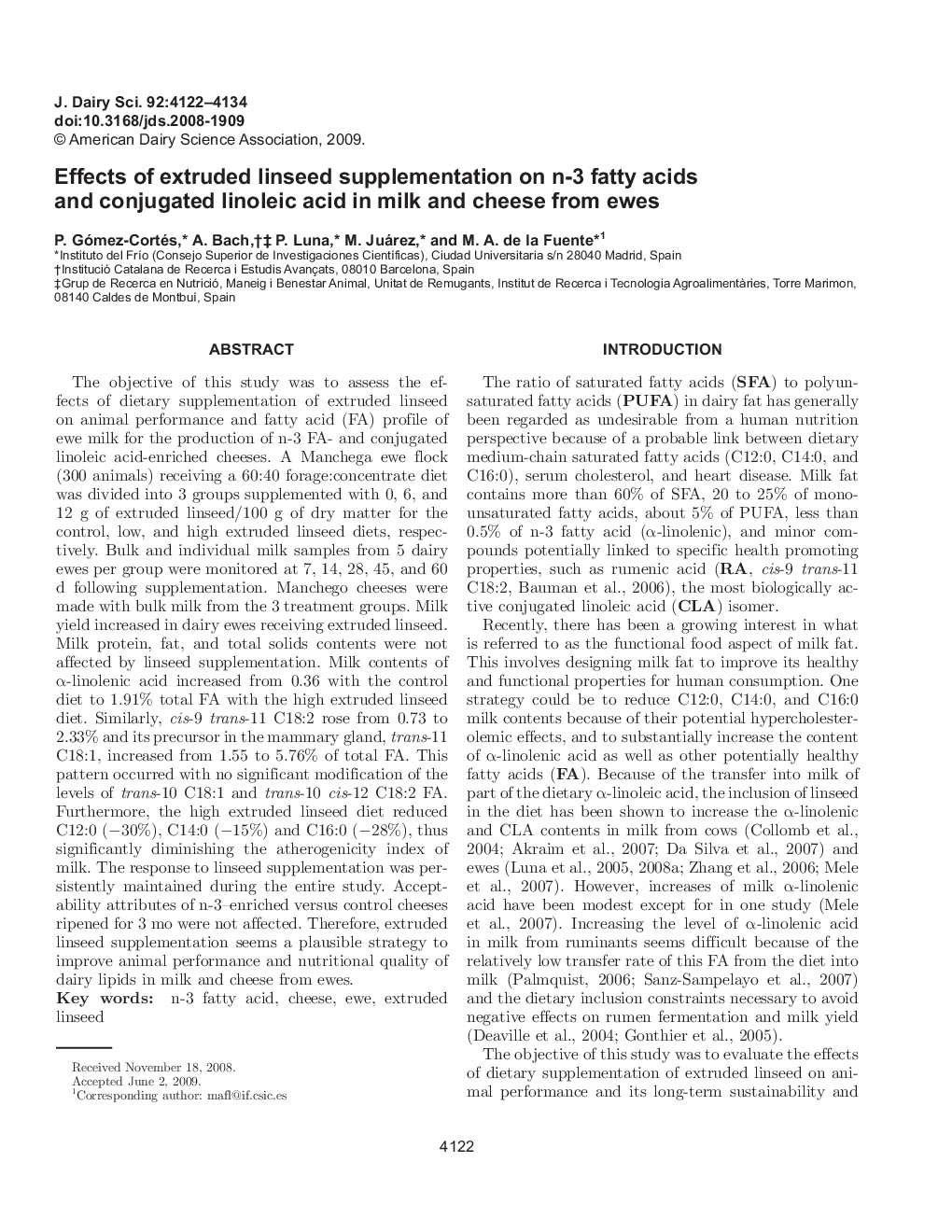| Article ID | Journal | Published Year | Pages | File Type |
|---|---|---|---|---|
| 2439438 | Journal of Dairy Science | 2009 | 13 Pages |
Abstract
The objective of this study was to assess the effects of dietary supplementation of extruded linseed on animal performance and fatty acid (FA) profile of ewe milk for the production of n-3 FA- and conjugated linoleic acid-enriched cheeses. A Manchega ewe flock (300 animals) receiving a 60:40 forage:concentrate diet was divided into 3 groups supplemented with 0, 6, and 12 g of extruded linseed/100 g of dry matter for the control, low, and high extruded linseed diets, respectively. Bulk and individual milk samples from 5 dairy ewes per group were monitored at 7, 14, 28, 45, and 60 d following supplementation. Manchego cheeses were made with bulk milk from the 3 treatment groups. Milk yield increased in dairy ewes receiving extruded linseed. Milk protein, fat, and total solids contents were not affected by linseed supplementation. Milk contents of α-linolenic acid increased from 0.36 with the control diet to 1.91% total FA with the high extruded linseed diet. Similarly, cis-9 trans-11 C18:2 rose from 0.73 to 2.33% and its precursor in the mammary gland, trans-11 C18:1, increased from 1.55 to 5.76% of total FA. This pattern occurred with no significant modification of the levels of trans-10 C18:1 and trans-10 cis-12 C18:2 FA. Furthermore, the high extruded linseed diet reduced C12:0 (â30%), C14:0 (â15%) and C16:0 (â28%), thus significantly diminishing the atherogenicity index of milk. The response to linseed supplementation was persistently maintained during the entire study. Acceptability attributes of n-3-enriched versus control cheeses ripened for 3 mo were not affected. Therefore, extruded linseed supplementation seems a plausible strategy to improve animal performance and nutritional quality of dairy lipids in milk and cheese from ewes.
Related Topics
Life Sciences
Agricultural and Biological Sciences
Animal Science and Zoology
Authors
P. Gómez-Cortés, A. Bach, P. Luna, M. Juárez, M.A. de la Fuente,
